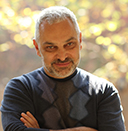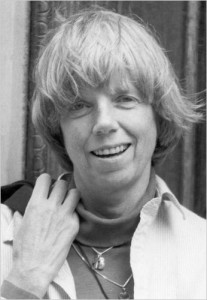A Quote by Marcus Tullius Cicero
The evil implanted in man by nature spreads so imperceptibly, when the habit of wrong-doing is unchecked, that he himself can set no limit to his shamelessness.
Related Quotes
In the state of nature, wrong-doing is impossible; or, if anyone does wrong, it is to himself, not to another. For no one by the law of nature is bound to please another, unless he chooses, nor to hold anything to be good or evil, but what he himself, according to his own temperament, pronounces to be so; and, to speak generally, nothing is forbidden by the law of nature, except what is beyond everyone's power.
To free a man from suffering, he must be set right, put in health; and the health at the root of man's being, his rightness, is to be free from wrongness, that is, from sin. A man is right when there is no wrong in him. I do not mean set free from the sins he has done: that will follow; I mean the sins he is doing, or is capable of doing; the sins in his being which spoil his nature — the wrongness in him — the evil he consents to; the sin he is, which makes him do the sin he does.
Man has reason, discrimination and free-will such as it is. The brute has no such thing. It is not a free agent, and knows no distinction between virtue and vice, good and evil. Man, being a free agent, knows these distinctions, and when he follows his higher nature, shows himself far superior to the brute, but when he follows his baser nature can show himself lower than the brute.
Solitude is the profoundest fact of the human condition. Man is the only being who knows he is alone, and the only one who seeks out another. His nature - if that word can be used in reference to man, who has ‘invented’ himself by saying ‘no’ to nature - consists in his longing to realize himself in another. Man is nostalgia and a search for communion. Therefore, when he is aware of himself he is aware of his lack of another, that is, of his solitude.
How much reverence has a noble man for his enemies!--and such reverence is a bridge to love.--For he desires his enemy for himself, as his mark of distinction; he can endure no other enemy than one in whom there is nothing to despise and very much to honor! In contrast to this, picture "the enemy" as the man of ressentiment conceives him--and here precisely is his deed, his creation: he has conceived "the evil enemy," "the Evil One," and this in fact is his basic concept, from which he then evolves, as an afterthought and pendant, a "good one"--himself!
In the ardor of his enthusiasm, a youth set forth in quest of a man of whom he might take counsel as to his future, but after long search and many disappointments, he came near relinquishing the pursuit as hopeless, when suddenly it occurred to him that one must first be a man to find a man, and profiting by this suggestion, he set himself to the work of becoming himself the man he had been seeking so long and fruitlessly.
I believe that the unity of man as opposed to other living things derives from the fact that man is the conscious life of himself. Man is conscious of himself, of his future, which is
death, of his smallness, of his impotence; he is aware of others as others; man is in nature, subject to its laws even if he transcends it with his thought.
Nature set a limit on sleep - as it did on eating and drinking. And youre over the limit. But not of working. There youre still below your quota. You dont love yourself enough. Or youd love your nature too and what it demands of you. People who love what they do wear themselves down doing it. They even forget to wash and eat.











































